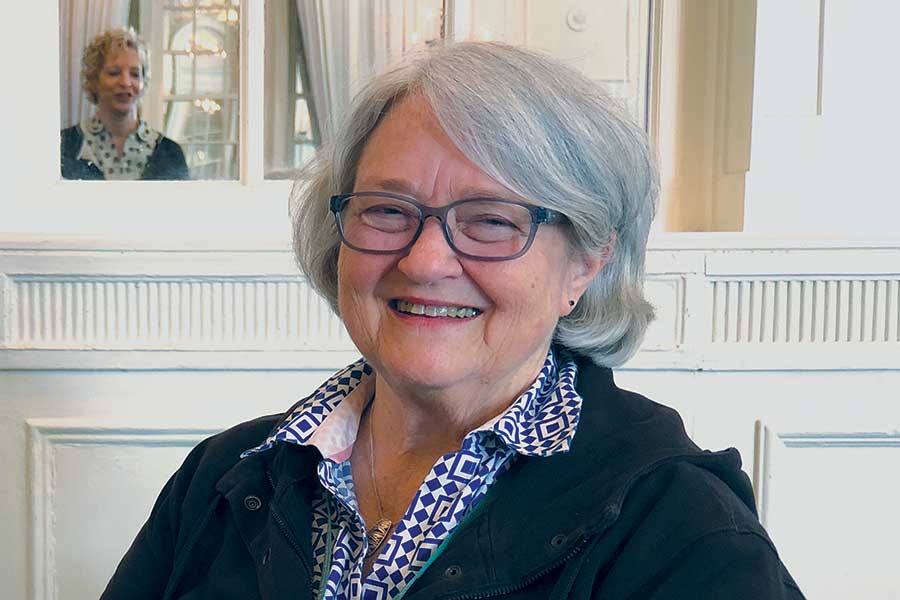This year, Philadelphia was home to a conference centering women’s health issues, as well as issues for LGBT physicians and members of the queer community.
From Aug. 8-11 at Bellevue Hotel, the 26th annual Women in Medicine (WIM) brought together women and sexual minority physicians and medical students who identify as LGBTQ. Patty Robertson and Lesley Anderson started WIM in 1984, originally calling it Bay Area Lesbian Doctors before settling on its current name. The first conference attracted 24 lesbian doctors from the U.S. and Canada.
“We needed a community to network,” Robertson said. “It was very isolating back then in 1984 being a woman and a lesbian physician. We invited Dr. Nanette Gartrell from Harvard to be our keynote speaker for our first conference. Her keynote address was ‘Closets are Health Hazards.’”
Robertson currently works part-time as a professor in the department of Obstetrics, Gynecology and Reproductive Sciences at the University of California, San Francisco and is a specialist in maternal fetal medicine. She also runs a program to expand the diversity of physicians in medicine and spends a lot of time mentoring LGBT medical students.
Doctors specializing in many areas of medicine attended this year’s conference, including those working in internal medicine, obstetrics and gynecology, emergency medicine and many other fields, totaling 80 attendees. The conference offers mentorship panels, one-on-one mentoring sessions and provides space for medical students to present their own research to an audience of experienced doctors.
“It was really unlike any other conferences I’ve been to,” said Tiff Tse, a second-year medical student at Jefferson. “A lot of the women there were kind of like the trailblazers, and I had a chance to speak to some of them about their experiences as lesbian women in medicine. To have that sense of community within medicine, but also among queer women, was very empowering.”
Amanda Oropeza, a physician who specializes in family medicine and HIV/AIDS in Spokane, Wash., spoke on a mentorship panel.
“It was really great to be able to mentor queer women in medicine,” Oropeza said. “For career [advice] or being out in medicine, talking to people about their struggles or their questions, or how to advocate better for our patients.”
Tal Lee, a fourth-year medical student at Philadelphia College of Osteopathic Medicine, found the small discussion group on “physician burnout” to be particularly helpful.
“One of the topics we discussed was labor unions for residents,” Lee said. “I didn’t know that we had those to advocate for ourselves. That’s a great way to prevent physician burnout, is to have some autonomy over your schedule and the way that your organization or institution runs.”
Dr. Susan Love presented her research on the function of breast ducts. “She’s been doing some research to try to elucidate the anatomy better so that we can understand the pathophysiology of breast cancer better, detect it earlier, treat it more appropriately,” said Kara Toles, emergency medicine physician and president of WIM.
Robertson spoke highly of Elinore Kaufman’s research presentation “Gun Violence in the United States: Policy, Prevention and the Physician’s Role.” Kaufman is a fellow in Surgical Critical Care and Trauma at Penn.
Though she focused her presentation on the broader issues of gun violence in the U.S., Kaufman said it does relate to the LGBT community, while acknowledging there is still a lot that we do not know about LGBT-related health issues in general, and within that, not enough information on gun violence within queer communities.
“Suicide is a major problem for LGBT people,” Kaufman said. “We do know that in general, guns are one of the most lethal means by which people attempt suicide. While the majority of suicide attempts are by other means, the majority of deaths from suicide are actually with guns.”
The Williams Institute of the UCLA School of Law issued a 2019 report saying that 51 percent of suicides in the U.S. occur by way of gun use, and 85 percent of gun-related suicides result in death. The report also shows that 10-20 percent of LGBT people have reported attempting to end their own life at least once.
In terms of community violence, Kaufman believes that transgender women of color, specifically Black trans women, are at the highest risk of becoming victims of gun violence in the U.S. Those statistics are lacking as well. African American men are affected by gun violence more than any other demographic, Kaufman said.
“The causes involve the policies that make guns so available,” she said. “But also involve the history of structural racism in our country that denies opportunity to certain groups of people more than others. I think that every health professional has a role in talking to our patients about access to guns and gun safety, and all of us, period, have a role in trying to work to reduce violence and gun violence.”
In the last year, WIM has seen a change in executive leadership, including Toles’ instatement as president. One of the major topics on the agenda of the executive board is making sure WIM remains inclusive of all women physicians who identify as LGBTQ, especially gender minorities. This has been an ongoing conversation for the board and conference attendees, both Toles and Robertson pointed out.
“The younger queer folk are using different terminology to describe themselves and their experience,” Toles said. “And that language isn’t necessarily familiar to the senior generation of our organization, so there’s this generational clash.”
Both Toles and Robertson are optimistic that this conversation will lead to more inclusive and diverse participation in future installments of WIM.

